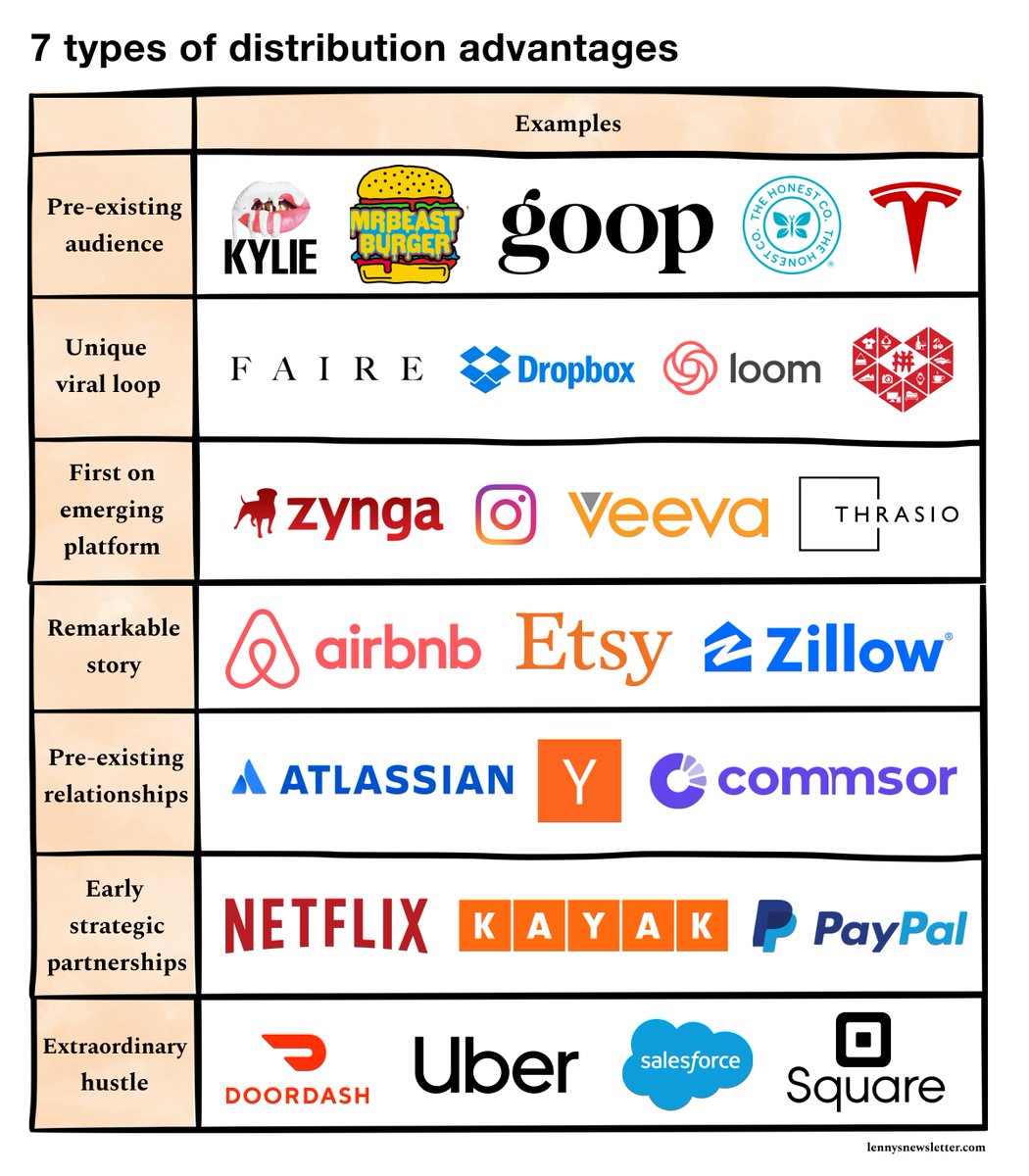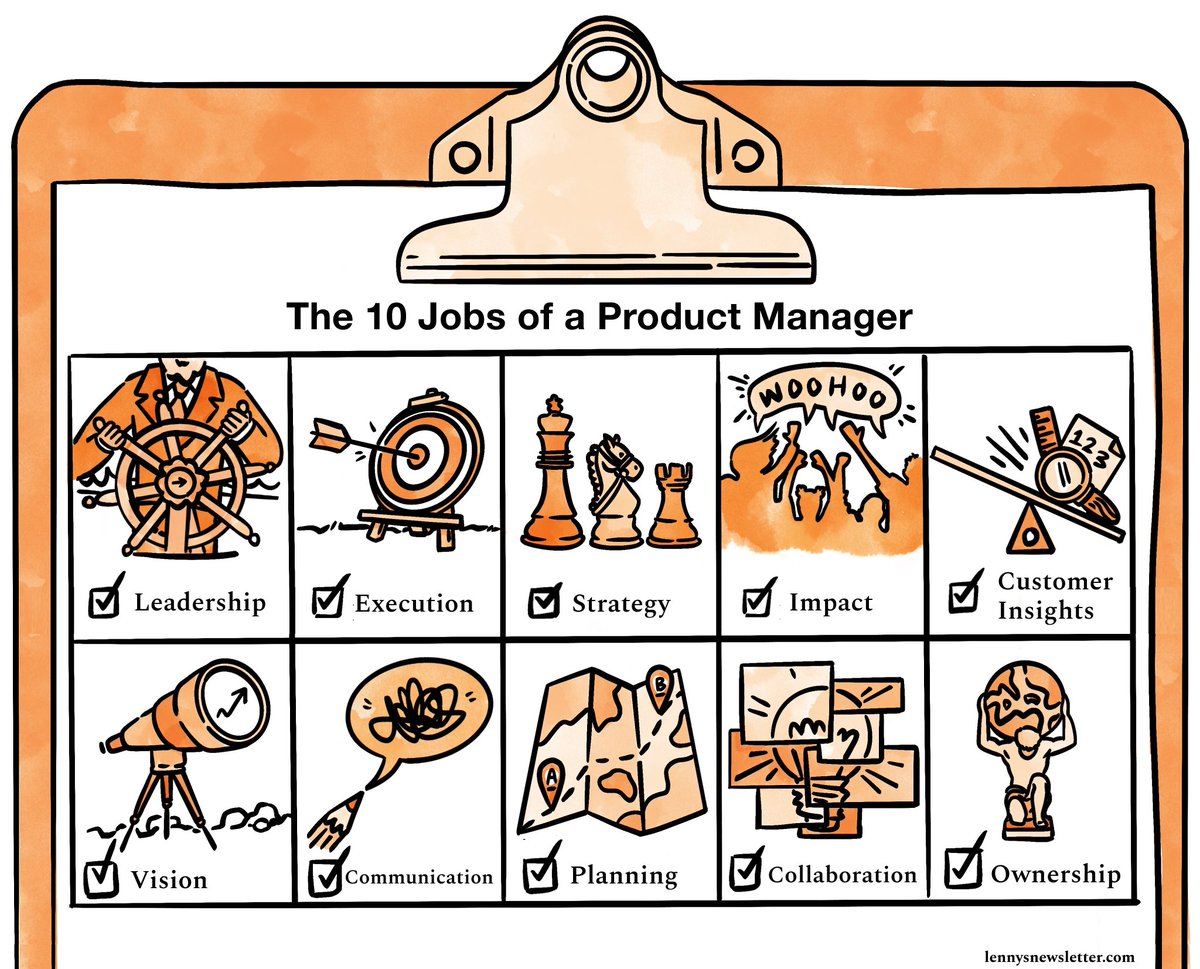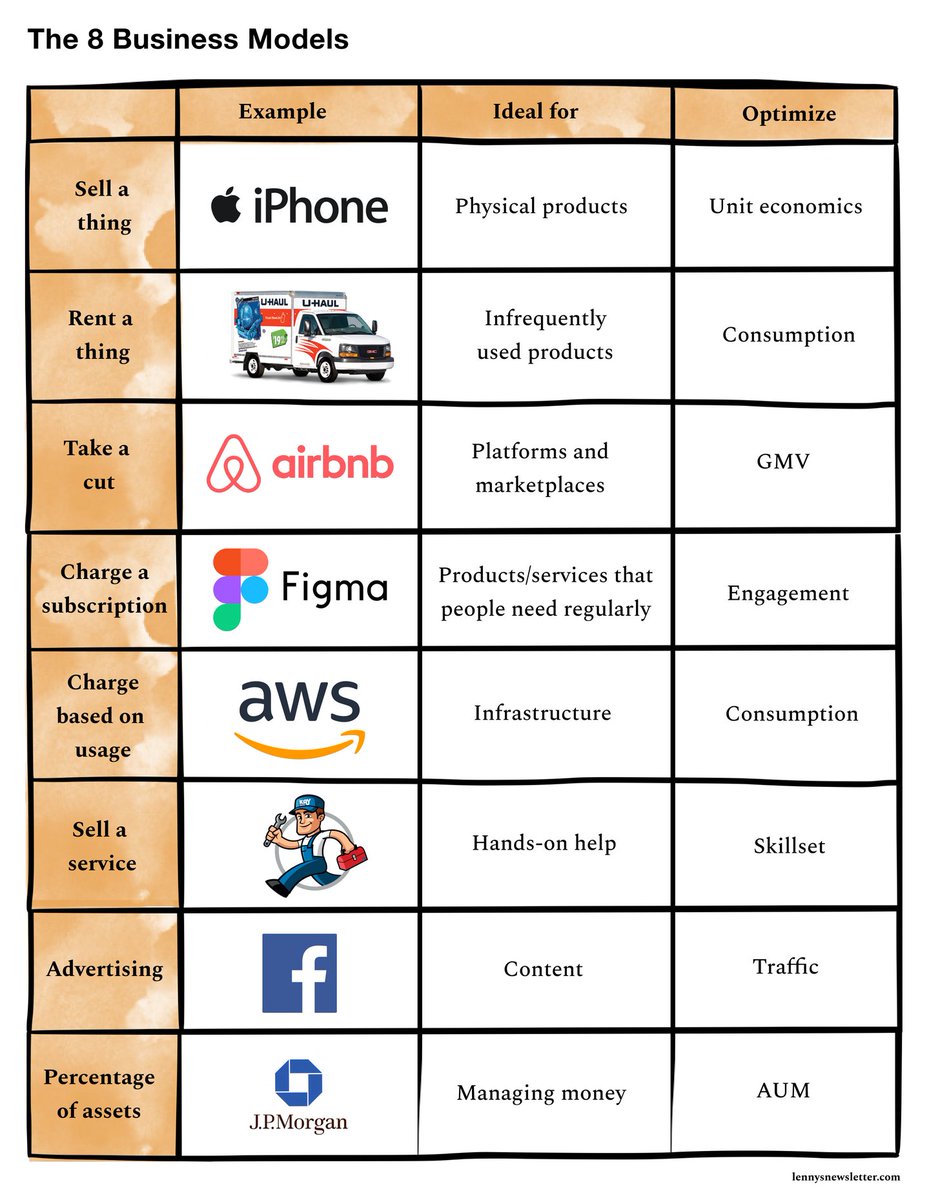
When raising money, investors are increasingly looking for your unique distribution advantage—how you get to your target market more cheaply and quickly than your competition.
Here are 7 types of distribution advantages 🧵
Here are 7 types of distribution advantages 🧵

1. Starting with a pre-existing audience
Companies like @kyliecosmetics (Kylie Jenner), @Square (Jack Dorsey), @Superhuman (Rahul Vohra), @goop (Gwyneth Paltrow), and @Tesla (Elon Musk) springboarded off their founder’s pre-existing audience, giving them an immediate advantage.
Companies like @kyliecosmetics (Kylie Jenner), @Square (Jack Dorsey), @Superhuman (Rahul Vohra), @goop (Gwyneth Paltrow), and @Tesla (Elon Musk) springboarded off their founder’s pre-existing audience, giving them an immediate advantage.
2. Developing a unique viral loop
I previously wrote about these magical loops, and one that always comes to mind is @faire_wholesale where the team found a way to incentive their supply to drive their demand, and their demand to drive their supply.
lennysnewsletter.com/p/magical-grow…
I previously wrote about these magical loops, and one that always comes to mind is @faire_wholesale where the team found a way to incentive their supply to drive their demand, and their demand to drive their supply.
lennysnewsletter.com/p/magical-grow…

3. Being first on an emerging platform
@zynga and @Facebook, @instagram and the iPhone, @PinduoduoInc and @WeChatApp Mini Apps, @veevasystems and @salesforce. So many companies broke out by riding the wave of new platforms. Check out this thread for more:
@zynga and @Facebook, @instagram and the iPhone, @PinduoduoInc and @WeChatApp Mini Apps, @veevasystems and @salesforce. So many companies broke out by riding the wave of new platforms. Check out this thread for more:
https://twitter.com/lennysan/status/1406653638836035590
4. Having a remarkable story
Companies like @Airbnb, @Etsy, @zillow, @TaskRabbit, and @Instacart grew primarily through (free) PR and word of mouth. Why? They are each remarkable—worth remarking about. Thus, reporters and people loved talking about them.
Companies like @Airbnb, @Etsy, @zillow, @TaskRabbit, and @Instacart grew primarily through (free) PR and word of mouth. Why? They are each remarkable—worth remarking about. Thus, reporters and people loved talking about them.

5. Starting with pre-existing strategic relationships
Another huge advantage is having a lot of pre-existing connections with your target buyers. Basically, having warm intros vs. going cold. This is exactly why joining programs like YC can be so effective for B2B startups.
Another huge advantage is having a lot of pre-existing connections with your target buyers. Basically, having warm intros vs. going cold. This is exactly why joining programs like YC can be so effective for B2B startups.
6. Closing early strategic partnerships
A few companies saw huge success in securing early strategic partnerships: Netflix made a deal with DVD manufacturers to insert flyers into DVD players, Kayak partnered with AOL, PayPal partnered with eBay. More:
A few companies saw huge success in securing early strategic partnerships: Netflix made a deal with DVD manufacturers to insert flyers into DVD players, Kayak partnered with AOL, PayPal partnered with eBay. More:
https://twitter.com/lennysan/status/1339252420073775106
7. Bringing extraordinary hustle
A final distribution advantage is simply making sh*t happen—no matter what. Tony Xu personally delivered food. Travis Kalanick handed out Uber coupon codes at Caltrain stations. Steve Jobs, Bill Gates, Marc Benioff, Zuck
A final distribution advantage is simply making sh*t happen—no matter what. Tony Xu personally delivered food. Travis Kalanick handed out Uber coupon codes at Caltrain stations. Steve Jobs, Bill Gates, Marc Benioff, Zuck
https://twitter.com/DanRose999/status/1403799514641731592
Much more in today's newsletter lennysnewsletter.com/p/distribution…
• • •
Missing some Tweet in this thread? You can try to
force a refresh







